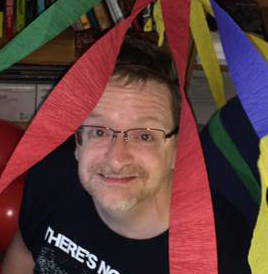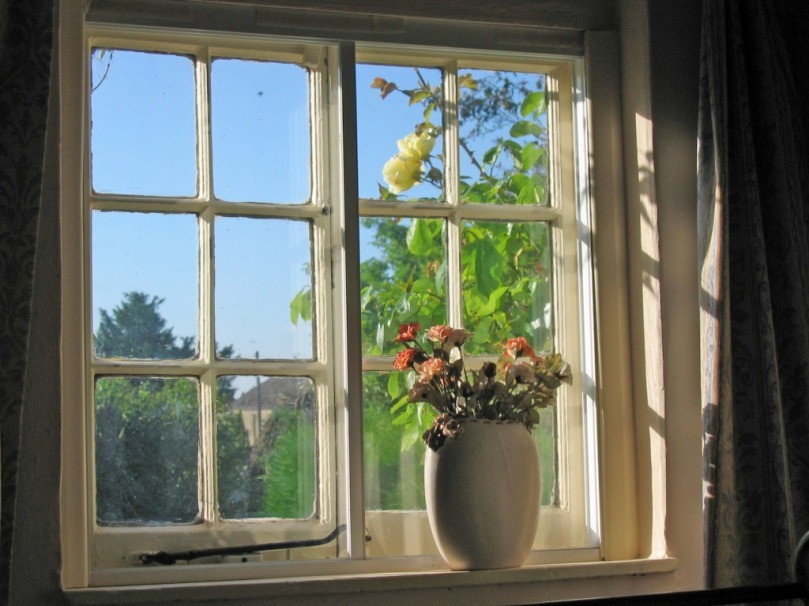Three years ago Mike Meadows, 47, had a game-changing heart attack that resulted in open-heart surgery and six by-passes. May 2, 2016, on his fiftieth birthday, Mike wrote the following on his Facebook page. (You can read more about the details of his cardiac wakeup call at the end of the blog.)

“I want to say a big thank you to everyone for the warm birthday wishes for big 5-0. Not to get too philosophical on you, but I promised myself something almost three years ago after heart surgery and this birthday was just cause to renew that promise.
” With the realization that I have more years behind me than in front of me, that promise was to spend more time doing those things I love without having a detailed plan in place. Not that there’s anything wrong with goals, mind you. But far too often in the past I’ve said, “One of these days I want to….” or “I wish I could do this but…” and then find some excuse for not doing it. I always wanted to see down the road and see where things were going before stepping out just doing it.
“That all changed with that promise. That’s why I’m on the Humane Society board. That’s why I continue with photography—canines, weddings (This year will be my busiest year.), families, seniors, and so forth. And that’s why I finally started playing the piano for college music students again. I’ve been trying to get on the roster of accompanists for the last couple of years, and I finally got on board for the fall semester of 2015 and continued this past spring semester and hope to return again in the fall. It’s certainly been a breath of fresh air and a stress reliever for sure.
“So it was very fitting that on my birthday, I had the opportunity to play for a young lady’s cello recital on my birthday. It’s been a real privilege to work with some really talented young people and awesome instructors these past couple of semesters. I am very glad to be playing again at this level and in this capacity.
“I have a quote on my computer at work that says, “The best time to plant a tree was twenty years ago. The second best time is now.” And that’s pretty much the way I’m approaching life right now. Life’s too short to put off the things that bring us joy while we keep ourselves busy with “life.” Where will it lead? Who knows? But you’ll never know until you start.”
What gives you joy?
Mike has discovered a wonderfully freeing truth, and I applaud him for recognizing it and doing something about it. That moment of recognition he experienced, and the resultant promise he made himself, reminds me of a marvelous poem I read years ago.
 I lost my soul today
I lost my soul today
For the sake of cleaning and computers and junk.
It was a wonder-day of beauty.
Rapturous leaves afire in the sun entreated me;
Butterflies beckoned, birds entreated with song;
The great sky, wide and blue as the ocean,
Implored me to drift on the miracle tide
Of gladness and renewing.
But I turned away.
There were chairs to be dusted, floors to be vacuumed…
Floors, mind you! Common carpet and dirt
That must absorb my being.
And the ecstatic world without
Pleaded with me in vain.
A book lay open on the table.
In it were hidden jewel-truths
More wonderful than gems in the depths of the earth.
”Gather us! Take us! Be comforted and inspired!”…
But there were keys to strike on a computer,
Documents to be typed and files to be sorted;
Papers, mind you, which must absorb my soul!
A Master Musician there was—
I might have heard Him had I paused to think it
This golden afternoon, the music of angels….
But there was junk in the garage that must be cleared away—
Junk, mind you! Stacking newspapers, sorting recycling, and categorizing things for my garage sale
That must smother my soul.
And the Great Musician played, unheeded.
Had I moved a few steps, I might have listened;
Had I gone a few paces from the cluttered path….
But I lost my soul today,
For cleaning, computers, and junk.
There will be many days when I may organize and type and clean.
I traded Beauty for an hour of cleaning
I sold my birthright to meet one more deadline.
O Beauty, stand once more upon my threshold!
O Day of Wonder, beckon me again!
That I, the penitent, may open wide my dwelling
And plead with Loveliness as she has pled with me.
—adapted from a poem by Angela Morgan
The first time I heard mental health connected with things that give us joy was in 1999 when I agonized about my career and read the book, What Color is Your Parachute? [1] The purpose of this book is to help you find a career you love. One of the most memorable exercises for me was to think back through your life and remember the times you were happiest. What were you doing at those times? What brought you the most fulfillment? In what activities were you most likely to lose track of time? Those are the things that give you joy.
Following the path of joy means I must stop doing those things that frustrate me and emotionally bankrupt me. I now leave committee and board work to others. I am very selective in my viewing habits, including Facebook, and am good friends with the “off” button. Violence, blatant sin, and rude disrespect drain my soul and I no longer tolerate them. The things I love that make the day worthwhile are being with my wife, observing nature, gardening and bird-watching, playing the piano, writing, and something new: coloring.
What about you?
Epilogue: The rest of Mike’s story
It all started on the day after Thanksgiving, 2012. Yes, Black Friday has new meaning to me. I was working at my computer one minute, and the next I found myself kneeling in the floor, clutching my chest in severe pain with all the classic symptoms of a heart attack. I sent my son across the street to my in-laws for aspirin, chewed a couple of them, and then got to the hospital. Within an hour or two I found myself looking out the window of a helicopter on my way to Indy.
After a heart catheterization to determine where the blockages were and to what extent they blocked blood flow, it was determined that I had a multitude of blockages but specialists weren’t in agreement regarding my readiness for surgery. Apparently, if you do surgery too early in the process, the grafts don’t mature. The diagnosis as I heard it: “You are now a ticking time-bomb.” Or as my family doctor succinctly pointed out when he saw the report, “Wow, your heart’s a mess!”
Upon my very anxious query, I was told by the doctors that if I were to start having heart issues again, then I would probably have similar symptoms to those I had on Black Friday. I guess the operative word here was probably. Fast forward eight months to late July. We had been experiencing a triple-digit heat index in Indiana for several days. I noticed that climbing the back stairs at work left me unusually winded and with a slight but vague tightness in my chest, but I attributed it to the smothering humidity and the heat of summer in Indiana. In the back of my mind, I wondered if my heart was acting up, but since I had no pain or other symptoms, I tried to ignore that little voice. A couple of weeks later I had finished shooting a wedding when the vague tightness in my chest returned. I thought it rather strange because it hadn’t bothered me all day, and the weather was cooler. I went home, started working on the wedding photos, and fell asleep. When I awoke around 3:00 a.m. the tightness was back and didn’t leave.
I jumped online and tried to self-diagnose and talk myself out of any misgivings I was having, but around 5:00 a.m. I told my wife that I thought I should get to the ER merely as a precaution. I figured they’d run tests and send me home. Within about twenty minutes of my arrival, they informed me they were sending me to Indy in an ambulance…my blood work showed that I was having another “cardiac event.” Upon arrival in Indianapolis, they immediately performed another heart catheterization, and it showed multiple blockages with the most serious being each of the main arteries feeding each side of my heart, which were both 95% closed. I guess if I had ignored my non-symptoms, I could have easily dropped dead without further warning.
They informed me that prompt surgical attention was a necessity and they started pulling a team together for the next morning. When they completed the surgery, I had six bypasses to call my very own. It’s certainly not something I would have wished for, but due to family history, it was something that wasn’t totally unexpected either. The thing that surprises me is that while I escaped further tragedy by a narrow margin, dodging a bullet wasn’t something that lingered too much in my mind. What I couldn’t shake was the nagging urgency that life now seemed to possess: the realization that life is really finite and there is an ending point of our time here on earth. No longer was the future just an open-ended question mark with a vague, fuzzy date of completion. If I wanted to make the most of my time here before the transition of death, then I needed to do something about it. Now.
[1] An updated edition is available each year on Amazon.com.






